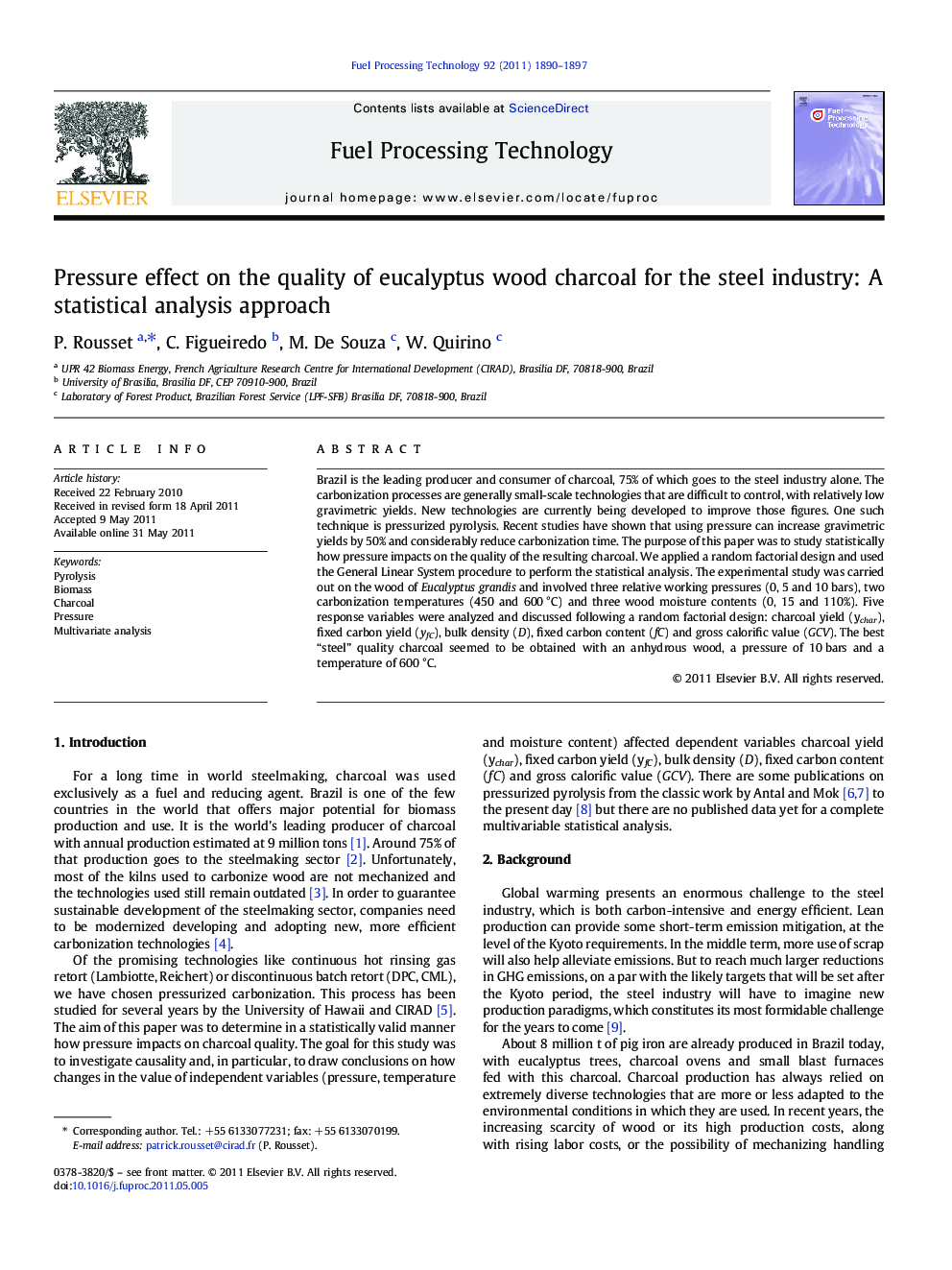| کد مقاله | کد نشریه | سال انتشار | مقاله انگلیسی | نسخه تمام متن |
|---|---|---|---|---|
| 210569 | 461717 | 2011 | 8 صفحه PDF | دانلود رایگان |

Brazil is the leading producer and consumer of charcoal, 75% of which goes to the steel industry alone. The carbonization processes are generally small-scale technologies that are difficult to control, with relatively low gravimetric yields. New technologies are currently being developed to improve those figures. One such technique is pressurized pyrolysis. Recent studies have shown that using pressure can increase gravimetric yields by 50% and considerably reduce carbonization time. The purpose of this paper was to study statistically how pressure impacts on the quality of the resulting charcoal. We applied a random factorial design and used the General Linear System procedure to perform the statistical analysis. The experimental study was carried out on the wood of Eucalyptus grandis and involved three relative working pressures (0, 5 and 10 bars), two carbonization temperatures (450 and 600 °C) and three wood moisture contents (0, 15 and 110%). Five response variables were analyzed and discussed following a random factorial design: charcoal yield (ychar), fixed carbon yield (yfC), bulk density (D), fixed carbon content (fC) and gross calorific value (GCV). The best “steel” quality charcoal seemed to be obtained with an anhydrous wood, a pressure of 10 bars and a temperature of 600 °C.
► Brazil is the world's leading producer of charcoal.
► Steelmaking sector companies need more efficient carbonization technologies.
► Pyrolysis under pressure is one of the most efficient means to recover energy from biomass.
► Our study was based on a strict experimental design and a statistical analysis.
► Bulk density was the response variable that was most influenced by the experimental variations.
Journal: Fuel Processing Technology - Volume 92, Issue 10, October 2011, Pages 1890–1897